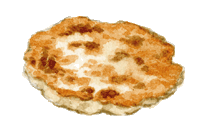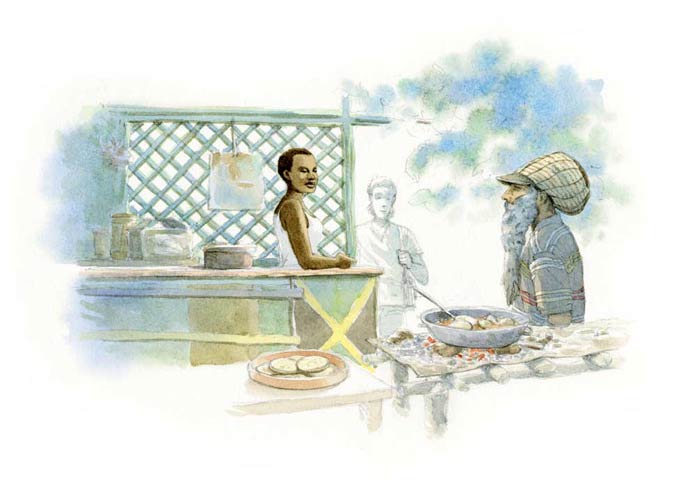Bammy or bami

Form: Shaped like griddlecake or flat bread
Country of origin: Jamaica
What distinguishes it from other methods of bread making: Made from manioc flour; fried
Category of bread: (2,6 and 7) Very similar to cassava bread, which is also made with manioc. In the category of flat breads, however, not at all similar to the Mexican tortilla or the Latin American arepa
Particularity: Once forgotten because wheat flour was cheaper, it was brought back to life in the 1990s
Ingredients: Manioc flour; coconut milk; salt; coconut oil

Jamaica
Bammy falls into the category of breads made with manioc. Preparation of the manioc pulp using tubers from the manioc plant requires a few precautions, since toxins have to be extracted from it. The Arawak Indians – hunters, fishermen and gatherers – in the Amazon forest adopted this plant at the beginning of the second millennium. The island they called it Xamayca (meaning “earth of the wood and water”) knew perfectly well how to use it.
Unlike the inhabitants of the Caribbean islands who became extinct on the arrival of the Spanish in the 15th century, the cassava recipe was passed down from the Indians to the first Europeans who landed in Jamaica and continues still today. The history of how know how is transmitted, whether it be food or other things, is still to be written.
This griddlecake fits neatly into the large family of cassava breads found throughout Latin America, the only minor difference being that it is not cooked on a hot plate, but fried in coconut oil, then soaked in coconut milk and fried again. This tasty griddlecake had nonetheless gradually disappeared among the inhabitants of this island of Jamaica, and would be just a memory if a strong support movement had not been set up with manioc producers in 1992, with the help of the FAO (Food and Agriculture Organization of the United Nations). Bammy has therefore made a strong comeback, and is much appreciated in the daily life of Jamaicans.

